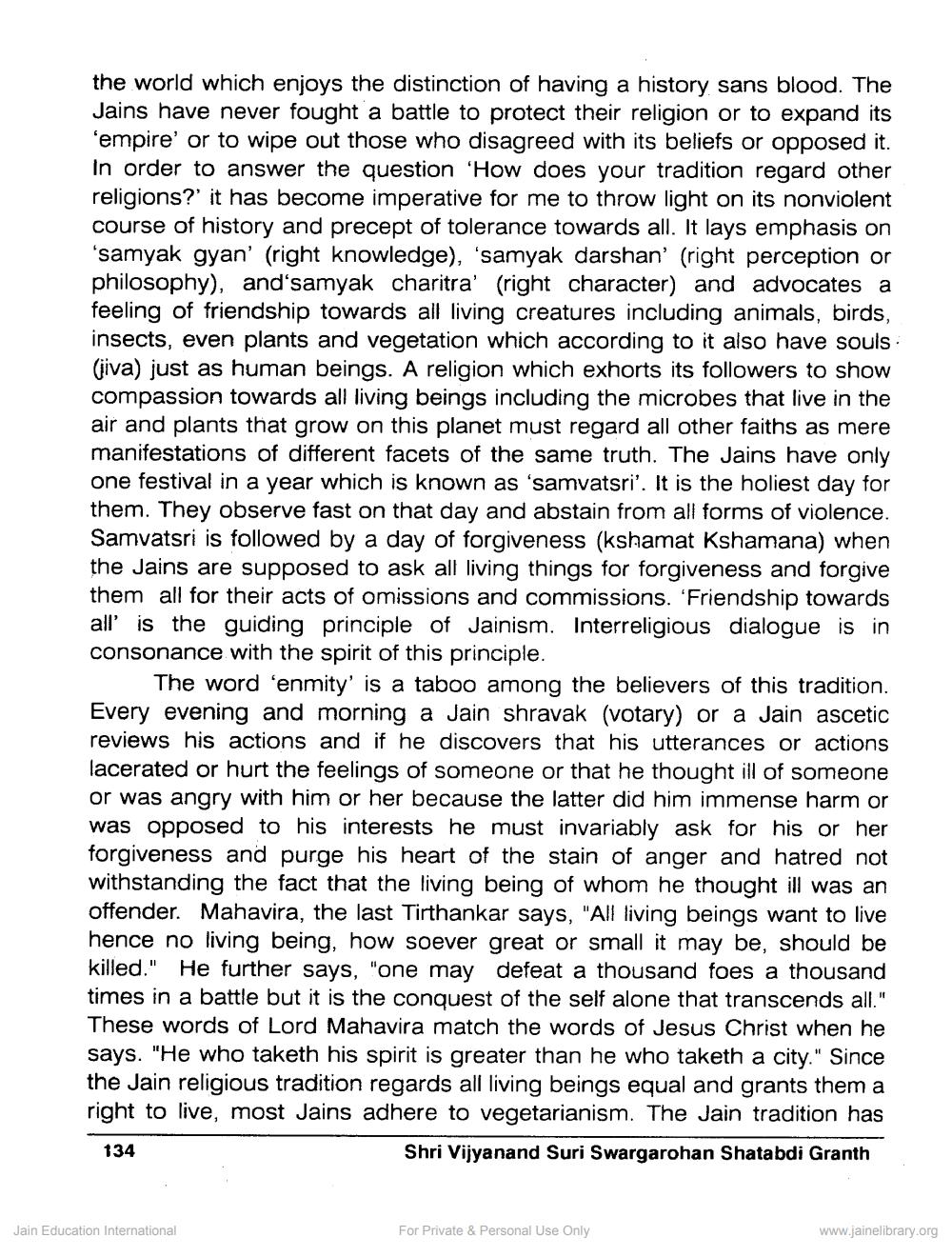Book Title: Jain Religious Traditon Author(s): S L Gandhi Publisher: Z_Vijyanandsuri_Swargarohan_Shatabdi_Granth_012023.pdf View full book textPage 2
________________ the world which enjoys the distinction of having a history sans blood. The Jains have never fought a battle to protect their religion or to expand its 'empire' or to wipe out those who disagreed with its beliefs or opposed it. In order to answer the question 'How does your tradition regard other religions?' it has become imperative for me to throw light on its nonviolent course of history and precept of tolerance towards all. It lays emphasis on 'samyak gyan' (right knowledge), 'samyak darshan' (right perception or philosophy), and samyak charitra' (right character) and advocates a feeling of friendship towards all living creatures including animals, birds, insects, even plants and vegetation which according to it also have souls (jiva) just as human beings. A religion which exhorts its followers to show compassion towards all living beings including the microbes that live in the air and plants that grow on this planet must regard all other faiths as mere manifestations of different facets of the same truth. The Jains have only one festival in a year which is known as 'samvatsri'. It is the holiest day for them. They observe fast on that day and abstain from all forms of violence. Samvatsri is followed by a day of forgiveness (kshamat Kshamana) when the Jains are supposed to ask all living things for forgiveness and forgive them all for their acts of omissions and commissions. 'Friendship towards all' is the guiding principle of Jainism. Interreligious dialogue is in consonance with the spirit of this principle. The word 'enmity' is a taboo among the believers of this tradition. Every evening and morning a Jain shravak (votary) or a Jain ascetic reviews his actions and if he discovers that his utterances or actions lacerated or hurt the feelings of someone or that he thought ill of someone or was angry with him or her because the latter did him immense harm or was opposed to his interests he must invariably ask for his or her forgiveness and purge his heart of the stain of anger and hatred not withstanding the fact that the living being of whom he thought ill was an offender. Mahavira, the last Tirthankar says, "All living beings want to live hence no living being, how soever great or small it may be, should be killed." He further says, "one may defeat a thousand foes a thousand times in a battle but it is the conquest of the self alone that transcends all." These words of Lord Mahavira match the words of Jesus Christ when he says. "He who taketh his spirit is greater than he who taketh a city." Since the Jain religious tradition regards all living beings equal and grants them a right to live, most Jains adhere to vegetarianism. The Jain tradition has Shri Vijyanand Suri Swargarohan Shatabdi Granth 134 Jain Education International For Private & Personal Use Only www.jainelibrary.orgPage Navigation
1 2 3 4 5 6 7 8
